The Future of Artificial Intelligence #20
We've spent much of this series explaining how and why we don't have the Artificial General Intelligence that we see in movies. Siri frequently doesn't understand us, we probably shouldn't sleep in our self-driving cars, and those recommended videos on YouTube & Netflix often aren't what we really want to watch next. Let's talk about what we do know, how we got here, and where we think it's headed
Episodes
-
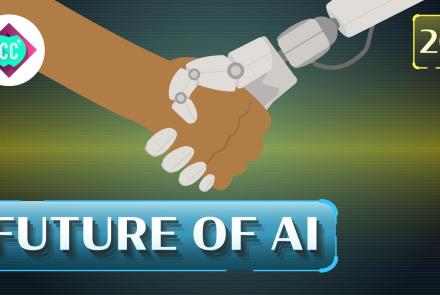
The Future of Artificial Intelligence #20
S1 E20 - 10m 50s
We've spent much of this series explaining how and why we don't have the Artificial General Intelligence that we see in movies. Siri frequently doesn't understand us, we probably shouldn't sleep in our self-driving cars, and those recommended videos on YouTube & Netflix often aren't what we really want to watch next. Let's talk about what we do know, how we got here, and where we think it's headed
-
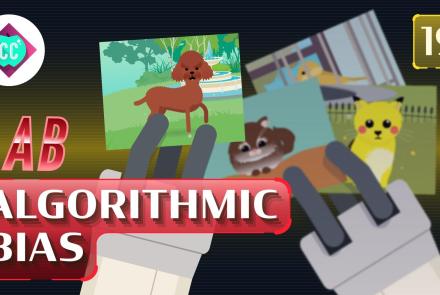
Cats vs Dogs? Let's Make an AI to Settle This (LAB) #19
S1 E19 - 13m 1s
Jabril tries to make an AI to settle the question once and for all, "Will a cat or a dog make us happier?" But in building this AI, Jabril will accidentally incorporate the very bias he was trying to avoid. So today we'll talk about how bias creeps into our algorithms and what we can do to try to account for these problems. https://colab.research.google.com/drive/1N5IdMTmiNbwEOD8dqammN8GAfpk41a…
-
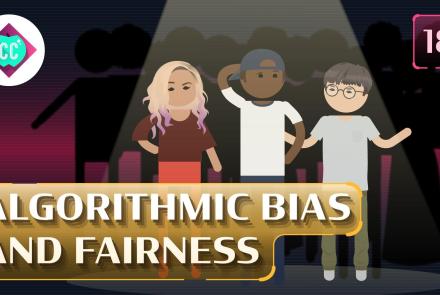
Algorithmic Bias and Fairness #18
S1 E18 - 10m 56s
We're going to talk about five common types of algorithmic bias we should pay attention to: data that reflects existing biases, unbalanced classes in training data, data that doesn't capture the right value, data that is amplified by feedback loops, and malicious data.
-

Web Search #17
S1 E17 - 11m 8s
Search engines can be the sort that serve up a list of results, like during a Google or Bing search, using web crawlers, an inverted index, and measuring stuff like click through and bounce back to figure out what you want to see. They can also be the kind that give you answers, like when you ask Siri or Alexa a question, relying on knowledge bases.
-
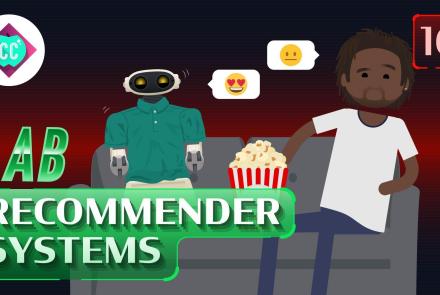
Let’s Make a Movie Recommendation System (LAB) #16
S1 E16 - 14m 33s
Jabril generally likes action movies and John Green Bot likes romantic movies, but they need to find something that they can both watch and enjoy together. Today, we’re going to build a movie recommender system to find that perfect movie. Follow Along: https://colab.research.google.com/drive/1-v9cw18wTDjaCUlECKHsQnHeisLKyG…
-
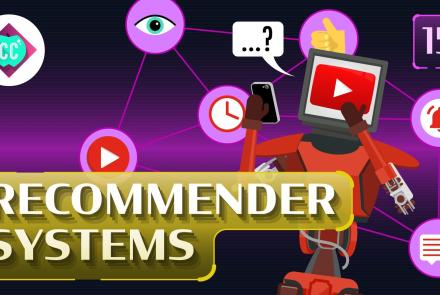
How YouTube Knows What You Should Watch #15
S1 E15 - 10m 19s
We’re going to talk about recommender systems which form the backbone of so much of the content we see online from video recommendations on YouTube and Netflix to ads we see on Facebook, Twitter, and everywhere else. We’ll talk about three types of systems - content-based, social, and personalized recommendations - and take a closer look at what they're good at, but also why they often fail.
-
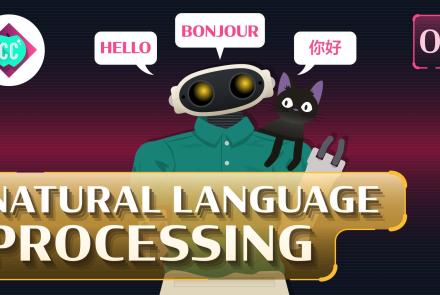
Natural Language Processing #7
S1 E7 - 12m 31s
We're going to talk about Natural Language Processing, or NLP, show you some strategies computers can use to better understand language like distributional semantics, and then we'll introduce you to a type of neural network called a Recurrent Neural Network or RNN to build sentences.
-
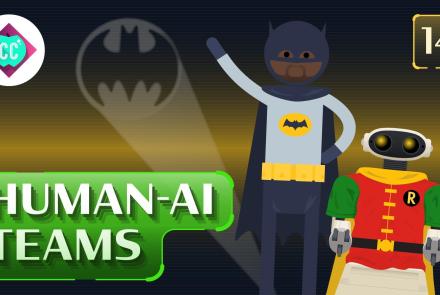
Humans and AI Working Together #14
S1 E14 - 9m 56s
Human-AI teams allow us to fill in each others weaknesses leveraging human creativity and insight with the ability to perform rote manual tasks and synthesize lots of information. This kind of collaboration can help us make better decisions, brainstorm new inventions, give us superhuman abilities, rescue victims of natural disasters, and of course become the ultimate chess master.
-
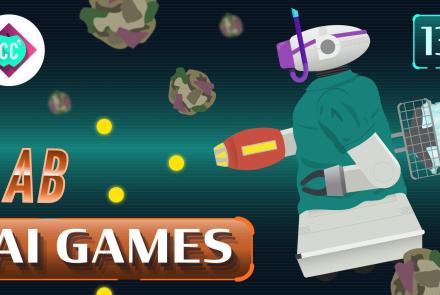
Let's Make an AI that Destroys Video Games (LAB) #13
S1 E13 - 13m 6s
Our game is called TrashBlaster, and it’s like Asteroids but with trash in the ocean, and instead of a spaceship John Green Bot is wielding a laser. We'll use machine learning techniques such as an evolutionary neural network alongside a carefully crafted fitness function to create an unstoppable AI.
Follow along: https://colab.research.google.com/drive/1uYXTDeBbPeuJfM1teufZ9nUaiRIN9n…
-
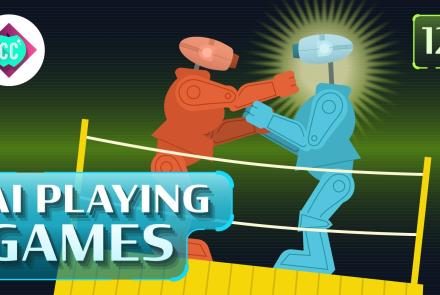
AI Playing Games #12
S1 E12 - 11m 11s
One of the best test spaces for building new AI systems are games. This is because games provide a great framework for an AI to learn an objective and slowly improve. We’re going to walk you through creating a Tic Tac Toe bot that uses the minimax algorithm to become undefeatable and we’ll talk about evolutionary neural networks like in SethBling’s MarI/O project.
-
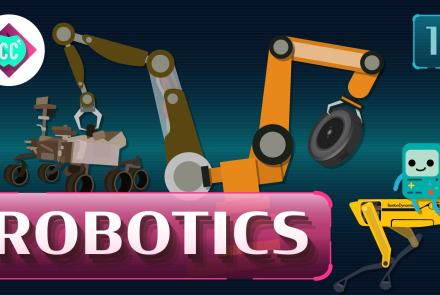
Robotics #11
S1 E11 - 9m 52s
Robots aren’t like humans who can do a lot of different things. They’re designed for very specific tasks like vacuuming our homes, assembling cars in a factory, or exploring the surface of other planets. Today, we're going to take a look at the role of AI in overcoming three key challenges in the field of robotics: localization, planning, and manipulation.
-
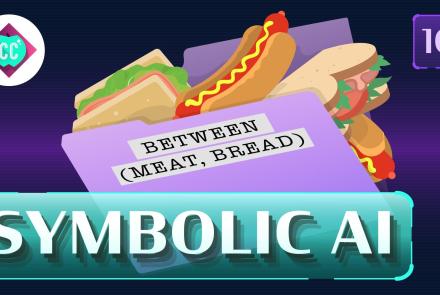
Symbolic AI #10
S1 E10 - 13m 1s
This type of AI is used broadly in video games and in expert systems like those that manage inventory at grocery stores and set rates at insurance companies. We'll show you how we represent symbols and their relations, teach you how to build a knowledge base, and then introduce some simple propositional logic that is at the heart of these AI systems.
WETA Passport
Stream tens of thousands of hours of your PBS and local favorites with WETA Passport whenever and wherever you want. Catch up on a single episode or binge-watch full seasons before they air on TV.
Similar Shows
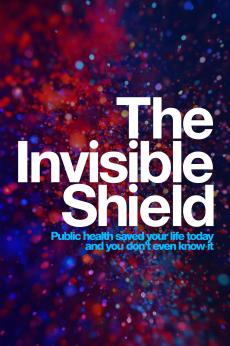
The Invisible Shield
Science and Nature

Phoenix Mars Mission: Onto the Ice
Science and Nature

A World Without NASA
Science and Nature
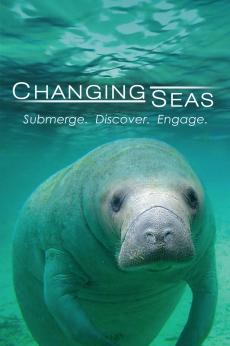
Changing Seas
Science and Nature
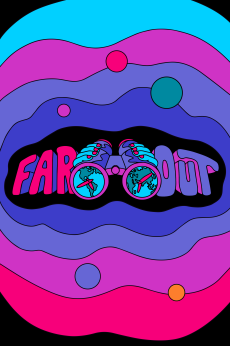
Far Out
Science and Nature

Earth's Natural Wonders
Science and Nature

SciGirls Stories: Black Women in STEM
Science and Nature

Life at the Waterhole
Science and Nature

Extra Life: A Short History of Living Longer
Science and Nature

Follow the Water
Science and Nature